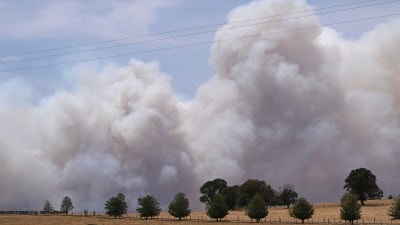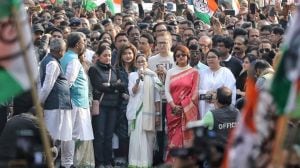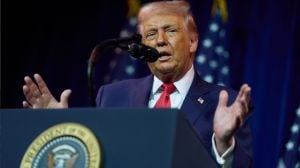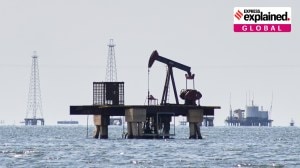Ho-Hum, The McCain Momentum
FEBRUARY 26: Americans have a shabby record of exercising their democratic duties, but the first-in-the-millennium White House race has fl...

FEBRUARY 26: Americans have a shabby record of exercising their democratic duties, but the first-in-the-millennium White House race has flooded voting booths and turned the usually ho-hum presidential nominating process upside-down. Lulled by relative peace and prosperity, Americans were expected to make an even poorer showing at the polls this year than their usual 10 per cent turnout during a primary nominating season. But they8217;ve broken records in the 2000 race to name the Republican candidate, and turnout has even doubled in the hottest state contests.
It8217;s partly the McCain momentum8217; launched by Senator John McCain8217;s come-from-behind maverick bid to beat out favorite George W. Bush for the Republican nomination. 8220;This competition is more intense,8221; said Andrew Kohut with the Pew Research polling center, adding, 8220;these are appealing candidates. Most people in the polls say they have been voting for positive reasons,8221; he added.
This year8217;s weird primary schedule and 8220;open8221; rules have also allowed Independents and Democrats to vote in the Republican process and they8217;re seizing the opportunity with gusto. For example, Michigan8217;s Republican primary Tuesday drew more party-crashers than members, with 51 per cent of the voters either Independents or Democrats and only 49 per cent Republicans.
President Bill Clinton8217;s departure has left the first open seat at the White House in over a decade, compounded by 8220;scandal-fatigue,8221; and is inspiring an quot;out-with-the-old/in-with-the-new8221; enthusiasm, according to Kohut. Nasty campaigning, which the Bush-McCain battle generated, traditionally turns voters off polls. But this year it angered them who went out just to cast ballots against offending parties. US voter turnout is often the lowest in the industrialised world. 8220;We make it difficult for people in this country to vote,8221; said Tami Buhr with Harvard University8217;s Vanishing Voter Project, citing the lack of automatic voter registration and votes that are scheduled on workdays. The increasing competition between Bush and McCain as they go into each race has also envigorated voters, said Buhr, adding 8220;it8217;s like soon coming to a state near you!8221;
The Democratic race between favorite Vice President Al Gore and his only long-shot rival Bill Bradley produced dismal participation in their first primary in New Hampshire. But Kohut said the excitement sparked by the Republican primary race could carry over to the November general election when the party nominees go head-to-head. 8220;I think we stand a good chance of having a better turn out. It8217;s not going to be a blowout and people will feel like they have more say in it and they8217;re more engaged with ongoing coverage,8221; Kohut said. 8220;We wrote in 1996 that 76 per cent think Clinton8217;s going to win and 80 per cent think the race is a bore. I don8217;t think we8217;re going to be writing that this time,8221; he said.
- 01
- 02
- 03
- 04
- 05































